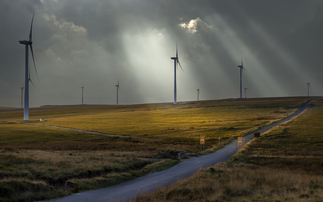Kanat Emiroglu, managing director of British Gas Business, says the government must engage providers to ensure the scheme is a success
We are at a pivotal moment in the development of energy policy in this country. At the heart of this is the Green Deal, a scheme that will give businesses the opportunity to invest in energy efficiency measures without the need for upfront investment.
The Green Deal has the potential to transform the fortunes of thousands of businesses. It will equip them with the tools to cut their energy bills by 10 to 20 per cent and reduce their carbon emissions in line with stretching government targets.
However, the impact of the Green Deal risks being undermined unless businesses start to recognise the contribution that energy efficiency can make to their future success. In a tough economic climate, cost savings are often the difference between success and failure. Energy efficiency measures are an untapped opportunity to make these savings.
It is therefore up to the government, energy suppliers, banks and business owners to work in collaboration to turn the Green Deal into an attractive proposition. We need to create a scheme in line with business needs for cost free improvements to their premises without requiring in-depth expertise. And we need to celebrate the success stories of the businesses that are using energy efficiency to drive business growth.
Threats to success
Ernst & Young uncovered some of the potential threats to a successful Green Deal in a report supported by British Gas which concluded that more work needs to be done to create a business-centric Green Deal in a number of areas.
First, the non-domestic Green Deal needs to be made bespoke to businesses. So far the Green Deal has been talked about as a one-size-fits-all scheme for businesses and households. However, the energy needs, time constraints and property characteristics of businesses differ significantly to those of households.
A Green Deal for businesses is likely to focus more on reducing electricity costs such as refrigeration, lighting and air conditioning. For households, improving insulation is usually the best means of improving efficiency. The government needs to work with providers to create Green Deal propositions that work not only for businesses but for businesses of different sizes and from different sectors.
Second, questions need to be answered about how the Green Deal will work when a business does not own the property it operates in - 65 per cent of SMEs are tenants. At the moment it's not clear how the Green Deal will work in a way that's beneficial to both tenant and landlord.
But above all, the case for energy efficiency needs to be made far more powerfully. Energy efficiency is considered too expensive and time consuming to be prioritised by the majority of businesses. But, from our experience of working with 661,000 SME customers, we know that 10 per cent savings can be made through simple behavioural changes and up to 20 per cent through installations of simple technology like a smart meter. This can have a significant impact on a company's bottom line.
A strategy for educating businesses on the benefits of energy efficiency will therefore be essential if the Green Deal is to fulfil its potential. We need to be bold in talking about energy efficiency and quickly identify and publicise the success stories that will create trust in the scheme.
Incentivising Green Deal providers
Without tackling these threats, the Green Deal risks being launched unnoticed. This will have a serious knock-on effect for the delivery of the Green Deal by potential providers like British Gas.
Central to the scheme is incentivising energy and finance providers to create commercially viable Green Deal products bespoke to individual businesses. To do this, they need to feel confident that take-up of the Green Deal is going to be significant enough to make it work.
At British Gas we take this task very seriously. We are committed to helping the government create a more customer-centric Green Deal. We have already invested in helping our customers implement smart metering, data analytics, energy efficiency technologies and microgeneration.
However the government now needs to actively engage with all providers in the development of the Green Deal to ensure their long-term commitment to making the scheme work.
A landmark in this process will come in the next few weeks when DECC launches a consultation on its proposals for the Green Deal. It is vital that providers and businesses engage with this process to create the best scheme possible.
Powering economic recovery
Small and medium sized businesses are the engine room of our economy. We are reliant on their success to power our economic recovery. SMEs create jobs, generate wealth and boost spending power. Energy policy that nudges businesses to become more efficient and cut costs will be key if SMEs are to play this role in securing our economic future.
At its heart, the Green Deal is extremely positive. It has the potential to transform the way many businesses manage their energy use. In order to succeed we must now create an attractive, workable scheme.
Above all, this requires a collaboration of government, potential providers and business owners to recognise the opportunity of energy efficiency for our economy and be bold in creating a scheme that works for all involved.
Kanat Emiroglu is managing director of British Gas Business







